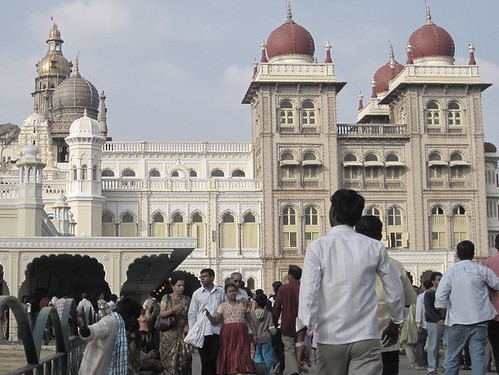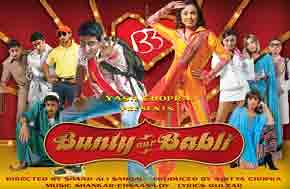The workplace has always been a safe haven. This had always been a place where the regular folks came to work. They all spoke English with the same fake accents and chewed gum while moving their jaws sideways and wore their underwear like a fashion statement. They all used “kewl” and not just a simple “Yass” like the wannabes. The regular folks all had been to similar schools and had seen similar films and read the same set of books while growing up. It was not surprising that their world view was also the same. They all had similar nicknames too. So Harmeet or Harpreet were all called Harry or something that sounded Western. Then when they came into the workplace, they all hung around with the regular people in the office cafeteria and on weekends socialized with each other over imported wine and cheese. Their progeny played “Scrabble” in the next room.Then the talent crunch happened and all this changed. The regular folks had to come to the workplace and rub shoulders with a diverse employee population. The talent crunch forced organizations to look beyond those who spoke the Queens English. The social change in the office has been palpable. Slowly but surely, the workplace has been adapting to the new inhabitants of cubicles. Over the last few years, there has been a steady dilution of the number of “regular” folks in the offices. The “Buntys and Bablis” – the people from small towns and rural areas have become a growing number that big city folks have to learn to include. The Bollywood movie Bunty Aur Babli was about the dreams of young men and women from the small towns of India. In the workplace Bunty and Babli represent the new archetype of the talent pool corporate India has to integrate into the somewhat homogeneous and insular workplace that we had got used to. I don’t know when this insignificant minority began to forge ahead and move into corporate offices, but today you cannot ignore them any more. The people from small villages, the second tier /small towns, from the not so prosperous end of the great Indian middle class have started becoming noticeable. Maybe it was triggered by the BPOs and now Retail who were desperately looking for more and more employees just to make their business model work. The movie struck a chord among all those who have moved to the metros in search of a career and the big city lights.
The Bollywood movie Bunty Aur Babli was about the dreams of young men and women from the small towns of India. In the workplace Bunty and Babli represent the new archetype of the talent pool corporate India has to integrate into the somewhat homogeneous and insular workplace that we had got used to. I don’t know when this insignificant minority began to forge ahead and move into corporate offices, but today you cannot ignore them any more. The people from small villages, the second tier /small towns, from the not so prosperous end of the great Indian middle class have started becoming noticeable. Maybe it was triggered by the BPOs and now Retail who were desperately looking for more and more employees just to make their business model work. The movie struck a chord among all those who have moved to the metros in search of a career and the big city lights. They may be still a little gauche and a little unsure of the soft skills and etiquette that a global workplace demands. They may not think in English and on the odd occasion you may still recognize their English as a direct translation from a regional language. But make no mistake, they are a hungry lot – hungry to succeed and they will do what it takes. They show the same spark that the big city folks did when they first stepped into the fast developing world of Corporate India a few decades back. The newbies had learnt the new rules of the game and very soon started to rewrite the rules. It was their own success that gave rise to the homogeneous workforce that we saw in Corporate India. Most people at the upper echelons of the corporation were alumni of the same colleges.Bunty and Babli will also rewrite the rules because they are too large a group to wish away. Globish and in some places Hinglish is entering the workplace as the language of comfort while English remains the language for formal occasions. Regional languages are showing up as the preferred language for spontaneous interactions among colleagues. They are a fast emerging consumer group too. Their needs are different. Open Mic nights in metros are the new emergent way of curing loneliness. Regional Language channels are rising in popularity. Bhojpuri channels grabs eyeballs in the Hindi heartland. Despite the success they have encountered in the big city, you can still find them yearning for the simplicity of life that only small town India provides. Maybe it was the unhurried and unadulterated simple life there that still brings a tear to their eyes when no one is watching. Notice how the ones experienced in the ways of the big town will quickly take the Bunty and Babli who is overawed by the ways of the big city.Here’s a mail that I got from a reader that captures this world seen from the eyes of a Babli:
They may be still a little gauche and a little unsure of the soft skills and etiquette that a global workplace demands. They may not think in English and on the odd occasion you may still recognize their English as a direct translation from a regional language. But make no mistake, they are a hungry lot – hungry to succeed and they will do what it takes. They show the same spark that the big city folks did when they first stepped into the fast developing world of Corporate India a few decades back. The newbies had learnt the new rules of the game and very soon started to rewrite the rules. It was their own success that gave rise to the homogeneous workforce that we saw in Corporate India. Most people at the upper echelons of the corporation were alumni of the same colleges.Bunty and Babli will also rewrite the rules because they are too large a group to wish away. Globish and in some places Hinglish is entering the workplace as the language of comfort while English remains the language for formal occasions. Regional languages are showing up as the preferred language for spontaneous interactions among colleagues. They are a fast emerging consumer group too. Their needs are different. Open Mic nights in metros are the new emergent way of curing loneliness. Regional Language channels are rising in popularity. Bhojpuri channels grabs eyeballs in the Hindi heartland. Despite the success they have encountered in the big city, you can still find them yearning for the simplicity of life that only small town India provides. Maybe it was the unhurried and unadulterated simple life there that still brings a tear to their eyes when no one is watching. Notice how the ones experienced in the ways of the big town will quickly take the Bunty and Babli who is overawed by the ways of the big city.Here’s a mail that I got from a reader that captures this world seen from the eyes of a Babli:
“History repeats itself. Years back, the industrialization brought people from villages to cities. Now shrinking resource pool in metros is repeating the same formula to strike gold. I had worked in a BPO during its expansion, had seen several principles at work. A small piece of information, why BPO considered the resource pool from Tier – II cities shared below.* The resource would not negotiate as much as their counterparts in the cities would do.* Generally, when they migrate, they stay in hostel /mess, so they tend to spend more time in the office. They became available for extra working hours at times, even before asking them.* Finally, since they were far away from their homes, they would not take sudden holidays. Most of the time it would be a planned long time one. This gave any management time to have a support up and running before they leave for the break. Furthermore it saved their incentives for the month, as it had a cut off such as, more than 3 days of leaves in a month would result in no incentives.I don’t deny the fact that there were pros and cons to these reasons, but yes the organization did profit from it.”
Many Human Resources people still believe that Diversity and Inclusion programs is just a passing fad. Wrong. Diversity is the answer to the talent crunch in any organization. The BPOs have been doing this for a while. So while they started off with their offices in the Metros, they have quickly discovered that to attract and retain talent they need to take the opportunity closer to those for whom that job is an aspirational job. Frustrated at their failure to attract fresh graduates of the top few Engineering colleges or Business Schools, many top Employers are opting for the next layer of institutes. The time is running out there too as the demand supply imbalance is offering options to the Bunty Aur Babli institutes. Having acquired diverse talent, the bigger challenge is to build an inclusive environment that enables the people who are “different”, to feel engaged enough to give their best. Therein lies the business case for making Diversity and Inclusion a part of the HR professionals’ list of challenges. While we have been quick to recognize their potential as a unique consumer group, Corporate India has not yet acknowledged their uniqueness as an employee group.The inhabitants of Bharat have stepped forward and are now ready to lead India on their own terms. The Bharat-ization of corporate India is inevitable.——-This article was originally published in October 2007. This version has been updated in Dec 2010


Leave a Reply to Julia Khare Cancel reply